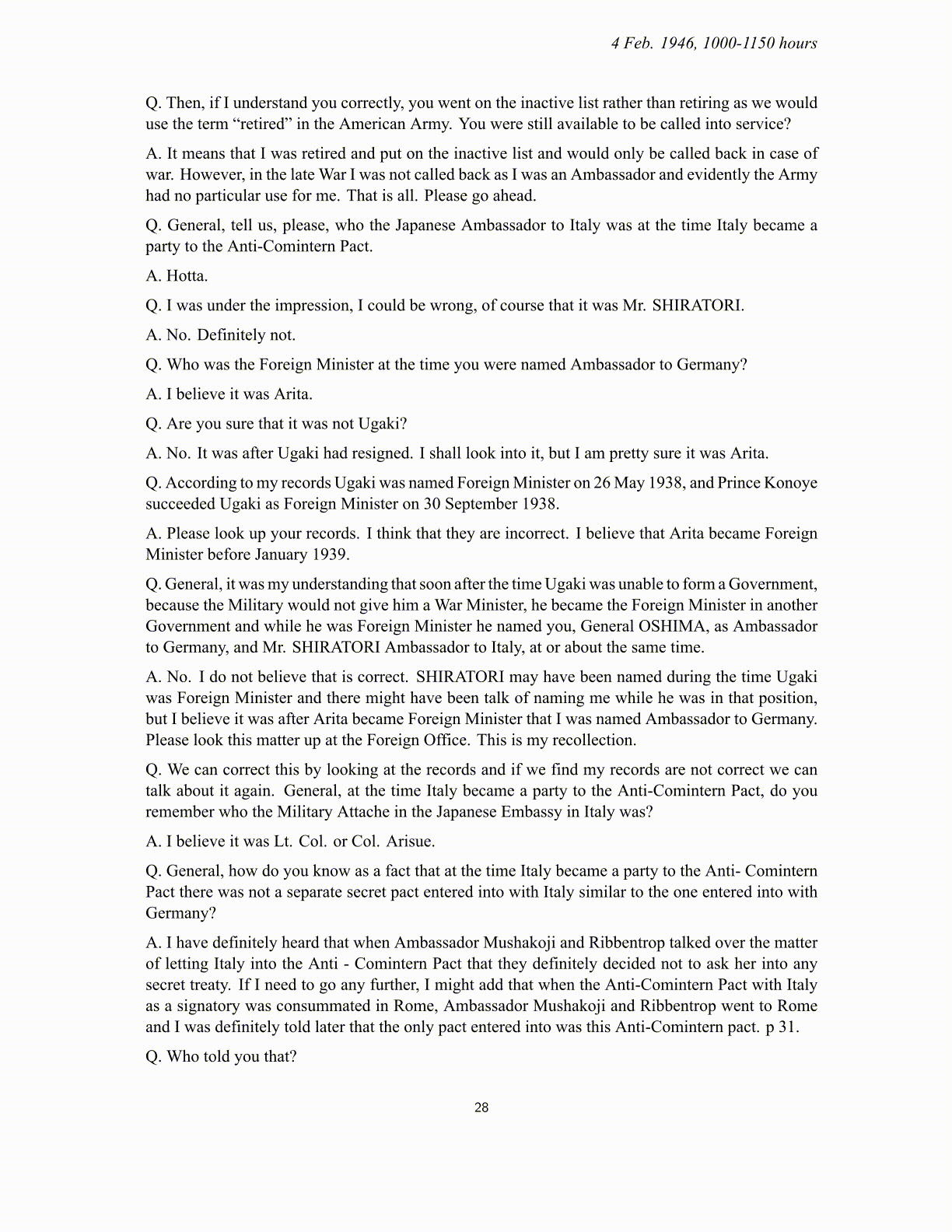
4 Feb. 1946, 1000-1150 hours Q. Then, if I understand you correctly, you went on the inactive list rather than retiring as we would use the term “retired” in the American Army. You were still available to be called into service? A. It means that I was retired and put on the inactive list and would only be called back in case of war. However, in the late War I was not called back as I was an Ambassador and evidently the Army had no particular use for me. That is all. Please go ahead. Q. General, tell us, please, who the Japanese Ambassador to Italy was at the time Italy became a party to the Anti-Comintern Pact. A. Hotta. Q. I was under the impression, I could be wrong, of course that it was Mr. SHIRATORI. A. No. Definitely not. Q. Who was the Foreign Minister at the time you were named Ambassador to Germany? A. I believe it was Arita. Q. Are you sure that it was not Ugaki? A. No. It was after Ugaki had resigned. I shall look into it, but I am pretty sure it was Arita. Q. According to my records Ugaki was named Foreign Minister on 26 May 1938, and Prince Konoye succeeded Ugaki as Foreign Minister on 30 September 1938. A. Please look up your records. I think that they are incorrect. I believe that Arita became Foreign Minister before January 1939. Q. General, it was my understanding that soon after the time Ugaki was unable to form a Government, because the Military would not give him a War Minister, he became the Foreign Minister in another Government and while he was Foreign Minister he named you, General OSHIMA, as Ambassador to Germany, and Mr. SHIRATORI Ambassador to Italy, at or about the same time. A. No. I do not believe that is correct. SHIRATORI may have been named during the time Ugaki was Foreign Minister and there might have been talk of naming me while he was in that position, but I believe it was after Arita became Foreign Minister that I was named Ambassador to Germany. Please look this matter up at the Foreign Office. This is my recollection. Q. We can correct this by looking at the records and if we find my records are not correct we can talk about it again. General, at the time Italy became a party to the Anti-Comintern Pact, do you remember who the Military Attache in the Japanese Embassy in Italy was? A. I believe it was Lt. Col. or Col. Arisue. Q. General, how do you know as a fact that at the time Italy became a party to the Anti- Comintern Pact there was not a separate secret pact entered into with Italy similar to the one entered into with Germany? A. I have definitely heard that when Ambassador Mushakoji and Ribbentrop talked over the matter of letting Italy into the Anti - Comintern Pact that they definitely decided not to ask her into any secret treaty. If I need to go any further, I might add that when the Anti-Comintern Pact with Italy as a signatory was consummated in Rome, Ambassador Mushakoji and Ribbentrop went to Rome and I was definitely told later that the only pact entered into was this Anti-Comintern pact. p 31. Q. Who told you that? 28